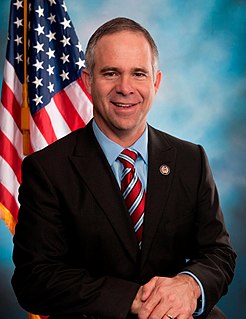A Quote by Paul Ryan
If we didn't propose these reforms, we would not have proposed a budget that got the debt under control.
Related Quotes
Independent experts have looked at what I've proposed and looked at what Donald's [Trump] proposed, and basically they've said this, that if his tax plan, which would blow up the debt by over $5 trillion and would in some instances disadvantage middle-class families compared to the wealthy, were to go into effect, we would lose 3.5 million jobs and maybe have another recession.
Donald Trump ran for office complaining that at $19 trillion, the US debt was completely out of control, and yet what he's planning to do is throw trillions of dollars more onto that debt. If the proposed tax plan cuts upon the wealthiest Americans is enacted, 10 years from now America's debt will be over $30 trillion. And so, he's contradicting, his own stated positions. And that's because, to Donald, none of this is about policy. It's not about sound economics. It's about greed and the glorification of the great leader.
The Catholic community, with many others, has long worked for this new commitment on global health and debt relief (President George W. Bushs proposed $15 billion Global AIDS initiative). I hope that Congress will now appropriate the money needed to make this legislation a reality, and that the U.S. government will press for strengthening the debt relief program along the lines proposed by this legislation.
It's not about what the speaker wants. It's not about necessarily what I want. There's two other principles involved here. It's what the constituents in my district want, and they didn't want to raise the debt ceiling unless there were significant structural reforms and spending cuts to help us balance our budget.
This debt crisis coming to our country. The wall and tidal wave of debt that is befalling our nation. Medicare and Social Security go bankrupt within ten years, we have a debt that is looming so high that in the last year of President Obama's budget just the interest payments on our debt is $916 billion dollars.
Now the masses of Latin America are electing governments they feel can take forward the democratic reforms of the last 20 years, and transform them into social and economic reforms. This is, I think, extremely important, because it also means that the left has abandoned the revolutionary solution proposed by Che Guevara and has taken the democratic path.
In a sermon entitled “God's Providence,” C. H. Spurgeon said, “Napoleon once heard it said, that man proposes and God disposes. 'Ah,' said Napoleon, 'but I propose and dispose too.' How do you think he proposed and disposed? He proposed to go and take Russia; he proposed to make all Europe his. He proposed to destroy that power, and how did he come back again? How had he disposed it? He came back solitary and alone, his mighty army perished and wasted, having well-nigh eaten and devoured one another through hunger. Man proposes and God disposes.






























